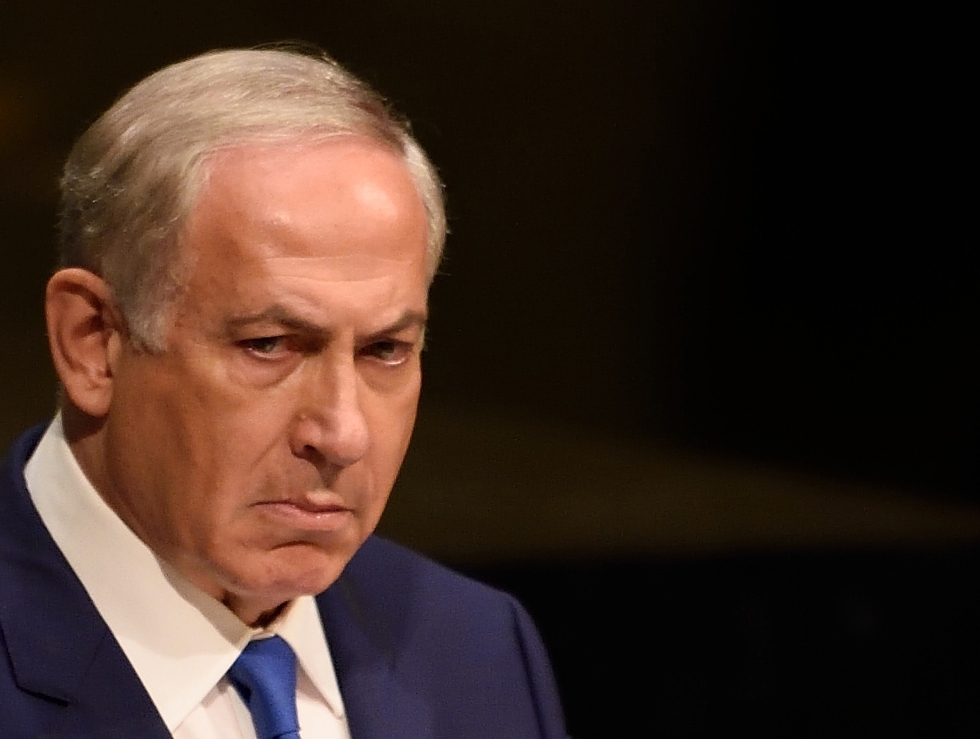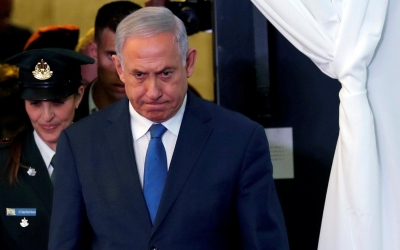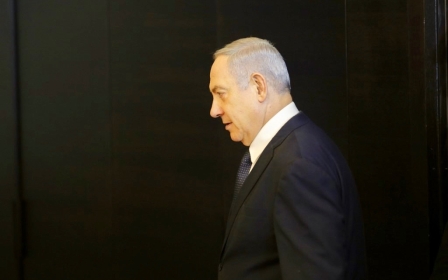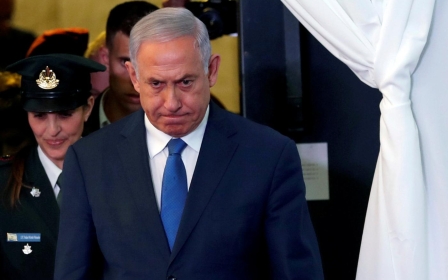Netanyahu drops request for parliamentary immunity from corruption charges

Israeli Prime Minister Benjamin Netanyahu said on Tuesday that he had dropped his request for parliamentary immunity from corruption charges.
The announcement came hours before Netanyahu was to meet in the White House with US President Donald Trump for the unveiling of the US administration's "deal of the century" concerning the Israeli-Palestinian conflict.
"I'm withdrawing the immunity request," Netanyahu said on Facebook. "I won't let my political opponents use this issue to disturb the historic move I'm leading."
The Israeli parliament, the Knesset, was set to meet on Tuesday to vote on the formation of a committee that would discuss the prime minister's request.
On Sunday, the right-wing bloc of parties backing Netanyahu's bid for premiership in the country's March election said it would boycott the process, calling it tainted and politicised.
The decision means Israel's attorney general can file the charges against Netanyahu with the Jerusalem District Court at any time, instead of having to wait for the conclusion of the immunity deliberations in the Knesset.
Witch hunt claim
Netanyahu was indicted in November on charges of bribery, fraud and breach of trust over allegations he granted state favours worth hundreds of millions of dollars to Israeli media barons in return for gifts and favourable coverage.
In a speech on live television earlier this month, the prime minister said that the charges against him were politically motivated and he was entitled to parliament's protection.
He denied any wrongdoing, saying he was the victim of a witch hunt by the media and the left to oust a popular right-wing leader.
Netanyahu was charged with breach of trust and fraud in three corruption cases, as well as bribery in one of the investigations, according to a charge sheet released by the justice ministry.
In the most significant case, dubbed Case 4000, the premier is accused of making decisions benefiting Bezeq - Israel's biggest telecommunications company - in exchange for positive coverage on the website Walla News, which is controlled by the company's former chairman.
Netanyahu could face a maximum sentence of 10 years in prison if he is found guilty of bribery.
He could face three years in prison for fraud and breach of trust.
Middle East Eye delivers independent and unrivalled coverage and analysis of the Middle East, North Africa and beyond. To learn more about republishing this content and the associated fees, please fill out this form. More about MEE can be found here.





